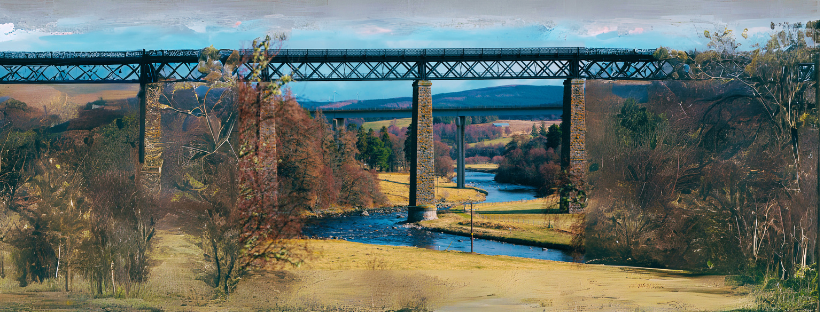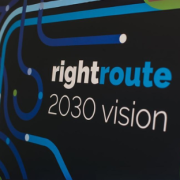Reviving the River Findhorn: LNER’s Investment in Nature Conservation
LNER’s partnership with the Findhorn, Nairn, and Lossie Rivers Trust is revitalising the River Findhorn’s ecosystem, combating declining salmon numbers and fostering community engagement for a sustainable future.
Communities and ecosystems nestled in the picturesque landscapes of the Scottish Highlands, particularly those along the River Findhorn, are celebrating a significant boost in funding from LNER’s Customer and Community Investment Fund. This funding injection is playing a pivotal role in rejuvenating natural habitats and safeguarding the iconic salmon population.
The stewardship of the Findhorn, Nairn, and Lossie Rivers Trust encompasses the care of all three rivers. In recent years, experts monitoring the Findhorn have observed a decline in salmon numbers, with climate change-induced rising water temperatures emerging as a potential culprit.
To counteract this trend, the Trust has embarked on its flagship project, the ‘Findhorn Watershed Initiative’. At the heart of this initiative is the strategic planting of native woodland along the riverbanks, aimed at providing crucial shade during the summer months to mitigate rising temperatures.

Thanks to the backing from LNER, the initiative has been able to implement an array of monitoring systems to collect essential ecological data. This includes conducting fish and invertebrate surveys and installing river temperature loggers, equipping researchers with the necessary insights to track progress and assess improvements over time.
However, the initiative extends beyond scientific intervention. It is deeply rooted in community engagement, recognising that fostering a connection between people and nature is essential for long-term conservation efforts. Through a comprehensive community outreach programme, volunteers from the local area have been empowered to contribute to the protection of the river for future generations.
The community engagement programme under the Findhorn Watershed Initiative has brought together individuals of all ages, fostering an appreciation for the river’s cultural heritage, wildlife and landscapes. Delving into the region’s rich history, participants have explored lost nature-related Gaelic place names, songs and stories, providing invaluable insights into the area’s ecological evolution and offering a roadmap for restoration efforts.
Bob Laughton, Director at the Findhorn, Nairn, and Lossie Rivers Trust, expressed gratitude for LNER’s support, highlighting the invaluable role it has played in gathering crucial baseline data to inform future conservation endeavors. He said,
LNER’s support over the past 12 months has been invaluable. During that time we’ve developed an important body of ecological and cultural baseline data and information which will help us target our work with the Findhorn Watershed Initiative to maximise positive impact for the landscapes, wildlife and communities of the upper River Findhorn catchment area into the future.
Rachael Wilson, Community Investment Manager at LNER, reiterated the company’s commitment to fostering a greener future, stating,
As a long-distance rail operator, we continue to play our part in creating a greener future and we are delighted to be supporting the Findhorn, Nairn, and Lossie Rivers Trust in their work to protect the Findhorn for generations to come. The project not only inspires people in the local community to come together but also to connect with nature and the area’s heritage, all in addition to the benefits for the environment and wildlife.
As the River Findhorn continues its journey towards restoration and preservation, the collaborative efforts between the Findhorn, Nairn, and Lossie Rivers Trust and LNER stand as a testament to the power of partnerships in safeguarding our precious natural resources.
For further information on LNER services, contact your Global Travel Management Account Manager.

















